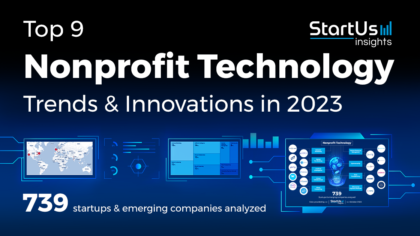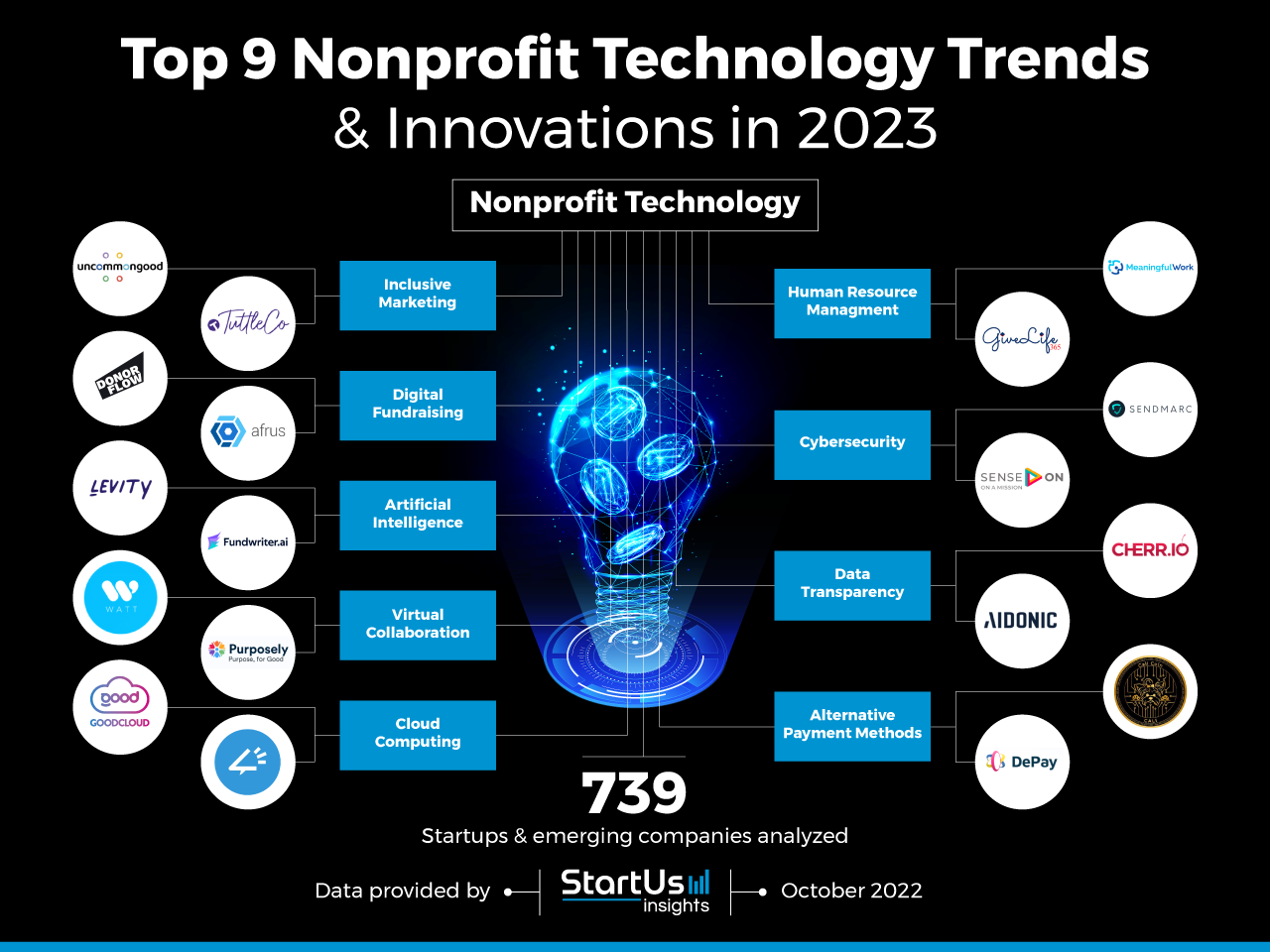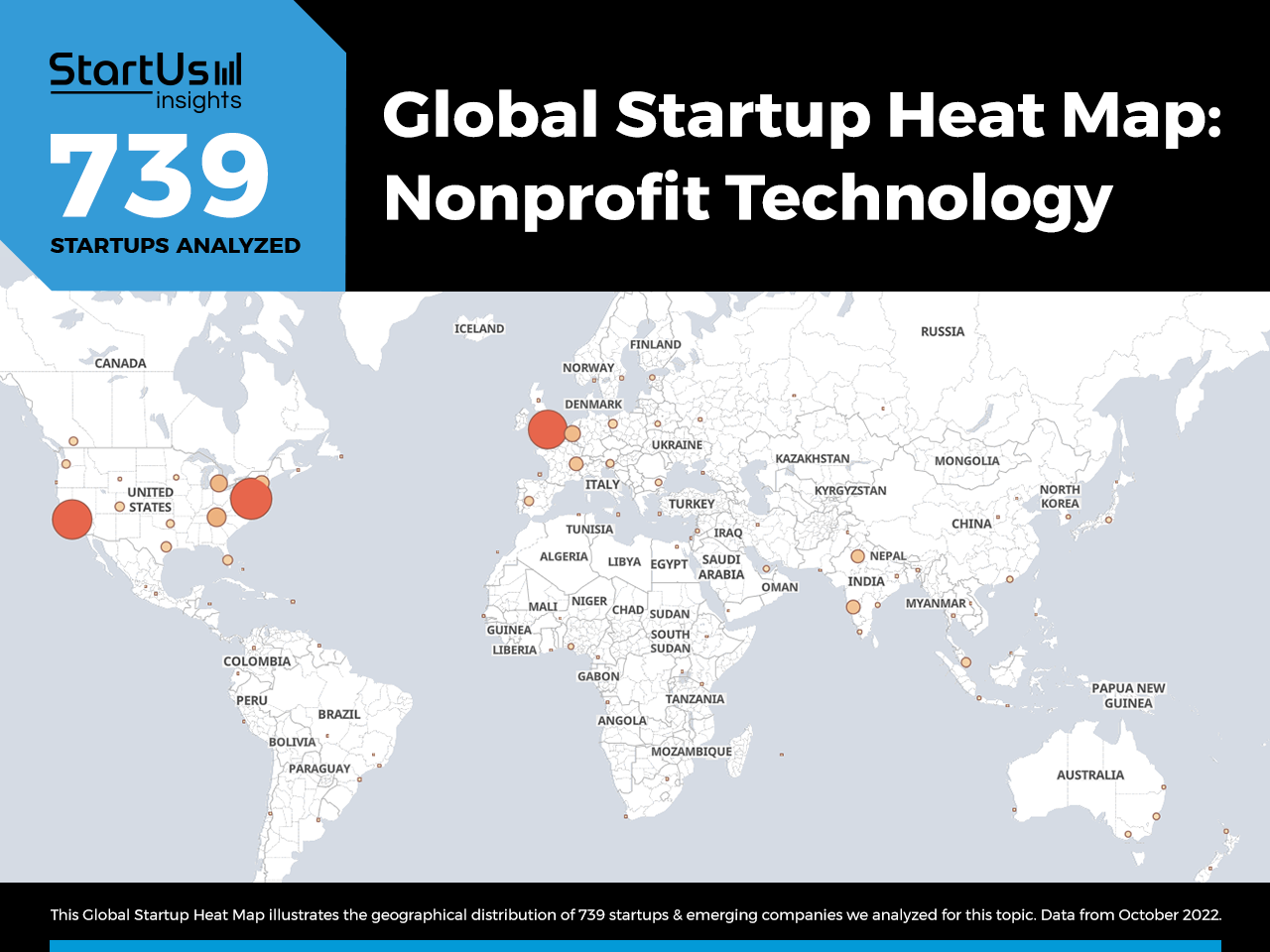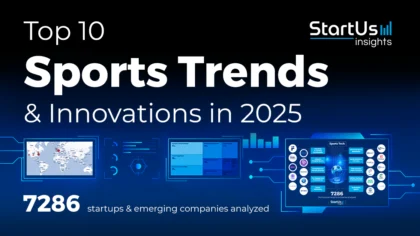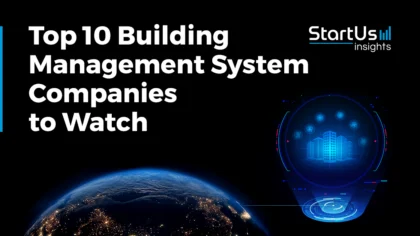Nonprofit organizations assist governments in socially and economically uplifting communities as well as provide undivided attention to community building. They receive funding from governments but also rely on fundraising to perform their activities. However, the COVID-19 pandemic lowered the financial resources available for nonprofits, restricted fundraising activities, and limited the possibilities of volunteering. This report provides an overview of nonprofit technology trends ranging from inclusive marketing and digital fundraising to cybersecurity and cloud computing. They allow nonprofit organizations to improve the quality of life.
Innovation Map outlines the Top 9 Nonprofit Technology Trends & 18 Promising Startups
For this in-depth research on the Top Nonprofit Technology Trends & Startups, we analyzed a sample of 739 global startups and scaleups. The result of this research is data-driven innovation intelligence that improves strategic decision-making by giving you an overview of emerging technologies & startups in the nonprofit industry. These insights are derived by working with our Big Data & Artificial Intelligence-powered StartUs Insights Discovery Platform, covering 2 500 000+ startups & scaleups globally. As the world’s largest resource for data on emerging companies, the SaaS platform enables you to identify relevant startups, emerging technologies & future industry trends quickly & exhaustively.
In the Innovation Map below, you get an overview of the Top 9 Nonprofit Technology Trends & Innovations that impact 739 companies worldwide. Moreover, the Nonprofit Technology Innovation Map reveals 18 hand-picked startups, all working on emerging technologies that advance their field.
Top 9 Nonprofit Technology Trends
- Inclusive Marketing
- Digital Fundraising
- Artificial Intelligence
- Virtual Collaboration
- Cloud Computing
- Human Resource Management
- Cybersecurity
- Data Transparency
- Alternative Payment Methods
Tree Map reveals the Impact of the Top 9 Nonprofit Technology Trends
Based on the Nonprofit Technology Innovation Map, the Tree Map below illustrates the impact of the Top 9 Nonprofit Technology Trends in 2023. Inclusive marketing and digital fundraising allow nonprofits to increase their outreach and raise funds more efficiently. At the same time, alternative payment methods utilize blockchains and digital tokens to improve transaction visibility, increasing financial trust. Further, cloud computing and artificial intelligence (AI) reduce costs and save valuable time by automating tasks. Better human resource management and virtual collaboration tools remove the limits imposed by COVID-19 while cybersecurity ensures critical data protection.
Global Startup Heat Map covers 739 Nonprofit Technology Startups & Scaleups
The Global Startup Heat Map below highlights the global distribution of the 739 exemplary startups & scaleups that we analyzed for this research. Created through the StartUs Insights Discovery Platform, the Heat Map reveals high startup activity in the US, followed by the UK.
Below, you get to meet 18 out of these 739 promising startups & scaleups as well as the solutions they develop. These 18 startups are hand-picked based on criteria such as founding year, location, funding raised, and more. Depending on your specific needs, your top picks might look entirely different.
1. Inclusive Marketing
Extensive marketing is necessary for nonprofit organizations to raise awareness. Moreover, marketing and outreach activities are the primary means through which nonprofits raise funds. Smaller organizations face challenges in marketing and often do not have the resources to conduct campaigns. To tackle this, startups are creating inclusive marketing solutions that cater to nonprofits of all sizes through simplified software. Besides, such solutions enable nonprofits to better connect with clients and donors through multiple channels, increasing their reach.
UncommonGood develops a Simplified Nonprofit Marketing Platform
UncommonGood is a US startup that develops a marketing platform for nonprofit organizations. It allows them to design and send branded emails and create custom organization profiles to increase engagement. The platform also enables organizations to communicate with their customers and send targeted messages, boosting donor and fundraiser engagement.
Tuttle aids Virtual Nonprofit Event Production
US-based startup Tuttle specializes in digital communication technology for nonprofits. The startup’s virtual event production enables nonprofit organizations to host live broadcasts, perform tech rehearsals, create branded intro and outros, and more. In addition to providing equipment, Tuttle works with on-site teams for live stream production. This enables nonprofit organizations to leverage online streaming and increase their marketing reach.
2. Digital Fundraising
Nonprofit projects entirely depend on contributions from individuals, companies, and foundations, which is why fundraising is a critical part of their operations. Previously, fundraising was largely associated with in-person meetings and events. Organizations mainly received donations through checks, envelopes, stamps, etc. This creates challenges in traceability, time, and effort in fundraising. Therefore, startups are offering digital fundraising solutions that provide complete traceability of donor funds and automate tasks such as transaction recording and invoice generation. Moreover, digitizing the fundraising process allows organizations to reach a wider audience and ensure fast transactions.
Donorflow facilitates Fundraising Management
Swedish startup Donorflow creates a digital fundraising tool to manage donors and automate communication. Its donor management system allows users to view donation streams and follow donor journeys over time. Besides, it integrates with Swish, Facebook, WooCommerce, Squarespace, and other platforms. The tool thus allows nonprofits to create successful fundraising campaigns and analyze donor behavior.
Afrus simplifies Crowdfunding Management
Afrus is a Colombian startup, operating from the US, that builds a cloud-based crowdfunding management app for nonprofit organizations. It lets users create custom donation forms, receive recurring donations, and optimize monthly donation collection. The platform also features dashboards to monitor income, growing donor base, cancellations, and more. It sends automated confirmation emails to donors when they perform actions and provides donation certificates to them. This reduces the time and effort nonprofit organizations spend on fundraising and donor management.
3. Artificial Intelligence
Artificial Intelligence continues to grow in its applications in nonprofit workflows to automate backend processes and generate key operational insights. This also increases revenues and reduces costs. AI assists nonprofit organizations in automating administrative tasks which especially benefits smaller nonprofits without dedicated staff for human resources management or administration. Further, the integration of cloud-based services in nonprofit organizations reduces the cost of implementing AI-based automation.
Levity advances AI Workflow Automation
German startup Levity develops a software-as-a-service (SaaS) platform for workflow automation. It allows organizations to upload images, PDFs, or text and the categories for the AI to begin learning. The trained AI block then connects to the organizations’ apps to automate workflows from end to end. Besides, the platform features a smart tagging engine, classifies email campaign responses with automatic replies, and predicts ad performance of ads. This frees up nonprofit volunteers and employees from repetitive tasks and improves efficiency.
Fundwriter.ai offers a Fundraising Assistant
US-based startup Fundwriter.ai develops an AI-based fundraising assistant that drafts professional appeals, emails, posts, and more. It allows users to select the best writing content, rearrange it, and add or delete language with the system, adapting as it writes more documents. The AI also assists writers by taking ideas or sentences and expanding them into fully developed paragraphs. This solution supports nonprofit organizations in quickly drafting highly personalized letters to donors and brainstorming for social media posts, among others.
4. Virtual Collaboration
The COVID-19 pandemic severely affected volunteering activities by placing restrictions on social gatherings and reducing volunteers for in-person activities. Additionally, specific locations restrict welfare activities due to the unavailability of volunteers ready to commute to remote areas. As a result, startups are developing solutions that enable nonprofits to collaborate virtually, removing physical or location barriers. Such tools also increase the quality of education provided as trainers do not need to relocate and encourage more volunteers to take part in activities.
WATT creates a Virtual Charity Walk Event App
WATT is a US-based startup that offers a platform to create virtual charity walks and running events. It requires users to download a companion smartphone or smartwatch app and select the cause they would like to support. The app then tracks their footsteps and allows users to challenge others and gain recognition for taking the most footsteps. This way, charities and nonprofits are able to initiate virtual marches or walks with minimal effort and cost while promoting engagement with supporters.
Purposely aids Remote Volunteering Management
Canadian startup Purposely provides a solution for nonprofits to create, grow, and run volunteer programs. It features a network of volunteers that are provided with paid time off by their companies. Nonprofit organizations are provided access to this network and fulfill their volunteer opportunities. The platform supports opportunities for team-friendly, remote-friendly, and limited-commitment roles like events, consult calls, and projects. This makes the process of volunteering and finding volunteers simplified while encouraging employees to volunteer.
5. Cloud Computing
Transitioning computing tasks to the cloud reduces costs and increases process efficiency for nonprofits. Moreover, they automate data processing workflows and centralize data management, improving organizational transparency. To aid this, startups are providing cloud-hosted software that allows nonprofits to track and manage employee workflows, engage with donors, deliver educational programs, train staff, and more. These features enable them to optimize their tasks while minimizing expenses on hardware and infrastructure.
GoodCloud offers a Cloud Storage Service
GoodCloud is a UK-based startup that specializes in cloud data storage services for charities and nonprofits. The startup’s cloud storage subscriptions feature central management and support unlimited users for a single subscription. It also features bulk upload of images, audio, video, and documents while providing visibility into data transfer and access activities in the cloud. This enables nonprofits and charities to store large volumes of data without high expenditure.
Campaignr provides Cloud-based Campaign Management
UK-based startup Campaignr offers a cloud-based campaign management platform for social, political, and charitable organizations. It makes collecting one-time or recurring donations quick and easy as well as allows nonprofits to track donors and analyze data to gain insights. The platform is also able to create complex membership systems, create emails, as well as track open and bounced emails, driving supporter engagement.
6. Human Resource Management
Nonprofit organizations leverage human resource management teams to hire, train, and retain employees. Efficient management of human resources is also necessary for organizations to keep the workforce aligned with organizational goals and keep them motivated. However, most nonprofits lack the resources for dedicated resource management teams. To tackle this, startups are creating HR management platforms that enable nonprofit organizations to streamline administrative tasks. Besides, learning management systems enables nonprofits to provide content libraries and improve employee and volunteer performance.
Meaningful simplifies Volunteer Recruitment
Canadian startup Meaningful creates a platform that connects nonprofit organizations to volunteers. It allows organizations to create profiles with information about their mission and areas of impact. The platform also features opportunity templates to post volunteer opportunities, saving time and accelerating volunteer screening. Moreover, it tracks volunteer hours and progress while creating stories about volunteers, boosting outreach. The platform thus reduces the effort in finding volunteers and monitoring their hours and progress.
GiveLife365 facilitates Membership Management
GiveLife365 is a UK-based startup that develops membership management software for nonprofits. It allows them to manage campaigns, grants, donor relationships, volunteer recruitment, and skill matching, among others. Further, the software facilitates the provision of discounts to select members and sends automated subscription renewal reminder emails. Through this, members of nonprofits are able to receive individual plans which increase recurring donations.
7. Cybersecurity
Workflow digitization in nonprofit organizations makes them prone to cyber-attacks. In addition, migrating operations to the cloud increases exposure to exploitable vulnerabilities. Unlike for-profit organizations, nonprofits are limited by funding availability to maintain dedicated cybersecurity teams. To tackle these issues, startups are developing cost-effective cybersecurity solutions. They allow nonprofits to secure cloud applications, emails, and sensitive user data. This also encourages contributors to donate without the fear of data leaks and misuse.
Sendmarc offers Email Protection
South African startup Sendmarc creates a cybersecurity platform to implement domain-based message authentication, reporting, and conformance (DMARC) compliance. The platform integrates with email service providers and provides full visibility into all legitimate and illegitimate emails. It also provides real-time reporting and analysis through continuous monitoring and management of email ecosystems to proactively defend against new threats.
Senseon advances Confidential Information Security
Senseon is a UK-based startup that develops a consolidated cyber defense system. It provides end-to-end data visibility as well as automatic response and remediation. Moreover, the system correlates sensitive data into one usable format for analysts to understand it without manually linking disparate data sources. Besides, the startup’s other product, Universal Sensor, reduces network blindspots and noise using AI-based reasoning frameworks. This enables nonprofits and charities to secure their confidential information and avoid fines from data breaches.
8. Data Transparency
Financial data transparency is critical for nonprofits to ensure legal compliance. Donors also rely on transactional transparency to verify whether their contributions are supporting the right causes. However, ensuring data transparency becomes a laborious task as middlemen and transactions increase while making the process more expensive. That is why startups develop data management platforms that improve visibility into operations. For example, blockchain-based systems save time, effort, and costs associated with data management. Additionally, this accountability and traceability build trust between nonprofits and donors, allowing them to track and trace financial transactions.
CHERR.IO enables Blockchain-based Donations
Slovenian startup CHERR.io offers a blockchain-based global donation platform. It combines smart contracts and the Ethereum blockchain to send funds to the receiving parties. These transactions are fully traceable and eliminate middlemen, reducing the number of transactions. The smart contracts also enable anti-fraud protection, donor confirmation of fund allocation, and a reward system for all active participants. This strengthens donor trust in organizations through real-time financial transaction transparency.
Aidonic improves Aid Distribution Transparency
Aidonic is a Swiss-based startup that remotely monitors aid distribution in real time. The startup’s solution enables real-time monitoring and analytics into cash and voucher distribution with secured blockchain-based transactions. Additionally, it tracks aid donations and integrates with Salesforce and other customer relationship management (CRM) systems to enhance transparency and digital fundraising efficiency.
9. Alternative Payment Methods
Traditional donation methods, such as cheques and stamps, are prone to counterfeiting and also take larger processing periods. On the other hand, alternative payment methods, like cryptocurrency and open banking platforms, accelerate transactions and improve transparency. Moreover, donating with cryptocurrencies provides nonprofits with appreciated assets, and donors in countries like the US receive tax benefits. That is why nonprofits are migrating to alternative payment methods that simplify transactions and improve the donor experience.
CaliCoin offers an Animal Adoption Cryptocurrency
UAE-based startup CaliCoin develops a charity token that allows animal lovers to donate to qualified charities. The transactions are fully transparent with all of the proceeds going directly to the charities, and require zero donation fees. CaliCoin is an ERC-20 and BEP20 token that is offered for sale across multiple centralized and decentralized exchanges (DeX). Moreover, the startup conducts due diligence on animals of determination (AOD) charities and veterinarians across the world, verifying their operating practices and management team.
DePay develops a Crypto-based Donation Platform
DePay is a Swiss startup that makes a Web3 payment platform based on decentralized finance (DeFi). It easily integrates with nonprofit organization websites and allows them to receive donations in cryptocurrencies. The peer-to-peer (P2P) payment platform removes middlemen and accepts thousands of different crypto assets across multiple blockchains. This enables nonprofits to accept funding in cryptocurrencies and provides donors the flexibility to donate with a wide range of tokens.
Discover all Nonprofit Technology Trends & Startups
Artificial Intelligence will allow nonprofits to expand their reach with smaller staff sizes while cryptocurrency and the blockchain increase the avenues for funding. The increasing digitization driven by the COVID-19 pandemic will see more nonprofits incorporate software in more aspects such as volunteering, human resources, and administration, among others.
The Nonprofit Technology Trends & Startups outlined in this report only scratch the surface of trends that we identified during our data-driven innovation and startup scouting process. Among others, open source data sharing, digital and global fundraising, and AI-based pattern recognition and need identification tools will transform the sector as we know it today. Identifying new opportunities and emerging technologies to implement into your business goes a long way in gaining a competitive advantage. Get in touch to easily and exhaustively scout startups, technologies & trends that matter to you!
